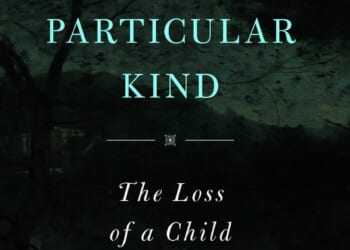My wife and I just finished the two-hour, movie-quality finale of Taylor Sheridan’s 1923, one of two “prequel” series to the entertainment juggernaut that was Yellowstone. We loved Yellowstone and appreciated the earlier prequel, 1883, but have had a more troubled reaction to 1923. It entertains enormously. The dialogue crackles, the acting is superb, the visuals are stunning — these, after all, are hallmarks of the Yellowstone universe — but we’ve also found it unusually slow and disjointed, with too many story lines competing for attention.
However, my purpose in taking up the 1923 finale isn’t to render a critic’s analysis. My American Spectator colleagues, Lou Aquilar and Bruce Bawer, are the true adepts at such things. Instead, I simply wish to invite appreciation for its depiction of “rough men” and “strong women,” and suggest that, at our present cultural moment, we need more of both. (RELATED: We Have the Great Stories: Let the Cinematic Renaissance Begin)
On more than one occasion, I’ve returned to the phrase “people sleep peaceably in their beds at night because rough men stand ready to do violence on their behalf.” The phrase is most frequently attributed to George Orwell, sometimes to Winston Churchill, and quite likely was never stated precisely that way by either man. But it paraphrases, succinctly, sentiments that both men shared and articulated frequently.
The rough men at the center of 1923 are the protagonist Spencer Dutton, played by Brandon Sklenar, and Harrison Ford’s aged family patriarch, Jacob Dutton. Across a generational divide, these two exemplify Orwell’s “rough men,” willing to do whatever it takes to protect their family, their home, and their traditional way of life. The animating quality is love, not cheap erotic love, but a love born of caring, of a deeply felt instinct to protect others.
Jacob Dutton, nearing age 80, still does everything in his power to protect the Yellowstone ranch against predators of all stripes. But surrounded and conscious that his powers are waning, he has his wife (Helen Mirren’s marvelous Cara) send an urgent message to faraway Africa, where Spencer has spent the years since his WWI service hunting lions to protect British railroad workers, and, not incidentally, avoiding coming home. Despite this apparent desire to distance himself from the family heritage, when the message reaches him that his family is in danger, he immediately drops what he’s doing to return home and take up its defense.
At this point, I should pause to say SPOILER ALERT. Words I’ve never had occasion to write in all my years as a public policy essayist.
As this last episode begins, Spencer has reached the final leg of a multi-continental odyssey filled with crises to test the mettle of even the most stalwart hero. Eventually arriving home, his train is met by Jacob and his men, but also by a huge gang of assassins hired by the villain. An epic shootout ensues, Jacob is wounded, and Spencer leads a rescue posse to the Yellowstone ranch, which is under siege by a second, almost preposterously huge gang of assassins. Spencer’s posse arrives in the nick of time (all the classic Western movie tropes apply), with Spencer personally accounting for a more than fair share of the killers.
He’s the epitome of the rough man, but what matters in the story’s telling is not his roughness, but rather how clearly and emphatically it’s deployed in the service of protecting those whose only desire is to “sleep peaceably in their beds at night.” Spencer, seconded by Jacob and the ranch’s cowboys, is very much the man of Orwell’s epigram. Indeed, if one wished an almost perfect cinematic representation of Orwell’s intent, one could scarcely do better than watch the finale of 1923. But don’t focus on the gunplay, rather on the love for family, for friends, and for the place that animates these rough men. This, after all, is what Orwell’s epigram is really about.
And don’t stop there. If 1923 is a showcase for rough men, it is as much — or even more — a celebration of strong women. There’s the matriarch, who comforts and supports her young niece through the agonies of rabies treatment, kills the rabid wolf who breaks into the house and savages a sleeping woman, and then, with the ranch under attack, takes up her husband’s scope-sighted elk rifle and kills a half dozen attackers, helping to hold the fort until Spencer and his posse of men arrive.
Then there is Alex, Spencer’s wife (Julia Schlaepfer, in a role likely to propel this young actress to stardom). Having thrown away all the advantages of her privileged upbringing to build a life at Spencer’s side, she finds herself cruelly separated from him, forced to make her way, alone and pregnant, over thousands of miles, repeated indignities, and countless cruelties. Poignantly, their reunion comes almost too late, as frostbite turned gangrenous, and promises to take her life.
In the climactic moment of the episode and, arguably, of the entire series, the doctors treating her insist that she must allow her baby to be aborted so that they can prepare her for the rigors of life-saving amputations. She refuses categorically, insisting that the baby be delivered and that every effort be made to keep it alive, even as she knows that this assures her own death, saying “the mother who would choose herself over her child is no mother at all.”
This is precisely the kind of courage that our “Hollywoke” female heroines consistently fail to display. Subdue six thugs with balletic martial arts moves — of course. But the ultimate courage of motherhood —well, this, sadly, has become utterly foreign to our entertainment industry.
The online reviews of this final episode, unsurprisingly, either dance around this moment or take note of it only to express horror at her choice. This, after all, is perhaps the most powerful anti-abortion message we’ve seen in recent years in popular entertainment and a stark repudiation of Hollywood values. (RELATED: America’s Abortion Blind Spot: How Liberals Convinced Americans to Ignore the Fetus)
Moreover, when Alex dies (in Spencer’s arms, of course), Spencer takes up the tiny baby and turns to Cara with a plaintive “I don’t know what to do.” To which Cara replies, “You’re not supposed to, dear, but I do.” And she does, taking charge, finding milk, ensuring that this three-month-premature infant flourishes to become the missing link in the Yellowstone heritage, the father of Kevin Costner’s character John Dutton.
Here again, beautifully portrayed, is a woman who can fight fiercely for her family, but also nurture — indeed, the call to nurture lies at the heart of her ferocity in battle. What a marvelous and inspiring role model she is, and how rare in today’s entertainment.
1923, however, is not just a tale about the needful qualities of rough men and strong women. It’s also a stark meditation on the nature of evil in the modern world, as personified by Timothy Dalton’s superbly acted, but utterly appalling, Donald Whitfield. The Whitfield character horrifies on multiple levels. The most obvious level is his casual cruelty and his thoroughly disgusting sexual depravity — he delights in exercising power and inflicting pain.
But his deeper purpose is a more profound perversion, a perversion of all that is good in Montana’s traditional values. Whitfield means to bend Montana’s natural beauty to the service of shallow tourism, in much the same manner as he perverts the beauty of the young women he seduces and destroys — the metaphorical connection is telling. His business model is that of the pimp, prostituting the state to promote cheap thrills and contrived diversions for the denatured — literally denatured — urban classes.
One listens as Whitfield expounds his vision to a meeting of investors and is reminded of C.S. Lewis’s “men without chests.” Whitfield embraces and promotes the moral relativism of the first progressive era, and of progressivism ever since. Man is all head and genitals, man has no heart, no connection to anything resembling truth and goodness, nothing worth defending, least of all family, neighbors, and the livelihoods of ordinary men and women.
1923, then, is the very antithesis of Hollywood’s “Snow-woke” rabbit hole. It’s exactly the kind of storytelling that, for all its flaws, for all its excesses, we conservatives might well appreciate. I’ve written more than once about our need for the classic heroes and heroines of an earlier age. If we are going to turn our benighted culture around, we need, once again, to celebrate rough men and strong women. The rip-roaring finale of 1923 might just be one place to start.
READ MORE from James H. McGee:
Old McDonald Wants the Bomb, E-I-E-I-O
‘Broken Windows’ and the Terrorism of Small Things
‘No, Mr. Bond, I Expect You to Die.’
James H. McGee retired in 2018 after nearly four decades as a national security and counter-terrorism professional, working primarily in the nuclear security field. Since retiring, he’s begun a second career as a thriller writer. His recent novel, Letter of Reprisal, tells the tale of a desperate mission to destroy a Chinese bioweapon facility hidden in the heart of the central African conflict region. A forthcoming sequel finds the Reprisal team fighting against terrorists who’ve infiltrated our southern border in a conspiracy that ranges across the globe. You can find Letter of Reprisal on Amazon in both Kindle and paperback editions, and on Kindle Unlimited.



![Jasmine Crockett Justifies Mass Illegal Immigration With Bizarre Argument [WATCH]](https://www.right2024.com/wp-content/uploads/2025/03/1742007023_Jasmine-Crockett-Justifies-Mass-Illegal-Immigration-With-Bizarre-Argument-WATCH-350x250.jpg)


![Red Sox Fan Makes the ‘Catch of the Day’ with Unconventional ‘Glove’ [WATCH]](https://www.right2024.com/wp-content/uploads/2025/04/Red-Sox-Fan-Makes-the-‘Catch-of-the-Day-with-350x250.jpg)
![NYC Tourist Helicopter Falls into Hudson River, Siemens Executive and Family Among Those Killed [WATCH]](https://www.right2024.com/wp-content/uploads/2025/04/NYC-Tourist-Helicopter-Falls-into-Hudson-River-Siemens-Executive-and-350x250.jpg)







